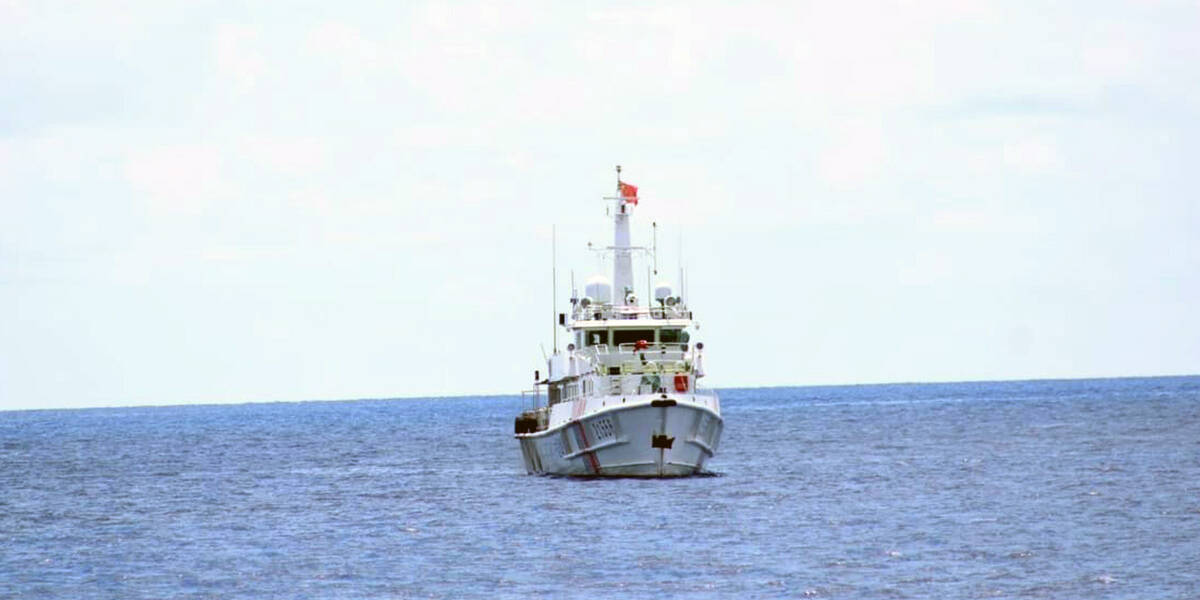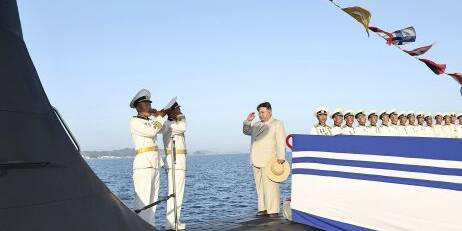Author: Brett D. Schaefer & Steven Groves, for The Heritage Foundation
KEY TAKEAWAYS
- China is seeking greater influence inside U.N. agencies—and it’s entered the race to head one with authority over global shipping rules.
- Though the IMO operates in relative obscurity, its actions have a substantial, if indirect, impact on standards of living worldwide.
- There is no question where Zhang Xiaojie will fall on any issue of import to Beijing. This should be highly troubling to the U.S. and like-minded governments.
China is seeking greater influence inside U.N. agencies—and it’s entered the race to head one with authority over global shipping rules: the International Maritime Organization (IMO).
We have seen what the Chinese Communist Party (CCP) is capable of when awarded such a leadership position. One need only look to how it handled the International Civil Aviation Organization (ICAO), which adopts codes, conventions, and guidelines governing procedures and practices for air traffic. As ICAO Secretary-General from 2015 to 2021, Chinese national Fang Liu undermined the mission and integrity of the organization.
Specifically, she used her influence to block Taiwanese participation, undermine accountability, and conceal a Chinese cyber-attack on the ICAO that spread malware to member governments and private industry.
This is only one example. Whenever Chinese nationals have led U.N. specialized agencies—whether at the International Telecommunication Union, the U.N. Industrial Development Organization, or the Food and Agriculture Organization—they have used their influence to benefit China in defiance of their responsibility to be neutral international civil servants.
Now the CCP wants to do the same at the IMO, which sets standards for the safety, security, and environmental performance of international shipping. The agency also has a role in maritime-related legal matters such as compensation, liability, and facilitation of sea traffic.
As was made clear at ICAO, China seeks leadership positions in U.N. organizations not from altruistic fidelity to their missions or to bolster their effectiveness, but to advance CCP policies and priorities. Over and over, when a Chinese national assumes a position of authority in the United Nations system, Beijing demands that they support and advance Chinese interests. So now that China has put forth a candidate to lead the IMO, we must ask why China wants this position and how it serves Beijing’s interests.
Though the IMO operates in relative obscurity, its actions have a substantial, if indirect, impact on standards of living worldwide. More than 80 percent of global trade in goods is delivered by sea, meaning that every person benefits from safe, secure, and timely shipping.
Beyond the consumer, the IMO also impacts national interests. The IMO has focused increasingly on combating air pollution and decarbonization related to shipping, including a “rapid shift from today’s predominant use of fossil fuels to zero-carbon alternatives,” and combatting illegal and unregulated fishing.
The IMO also sets rules and standards that affect military maritime movement through key international waterways such as the Straits of Malacca and through strategic archipelagic sea lanes in Indonesia and the Philippines.
China has a strong interest in these issues. When combined, China and Hong Kong rank first among the world’s nations in terms of ownership by commercial value and third in terms of shipping registries, so rules and regulations that require refitting or updates to vessels disproportionately impact China.
Illegal and exploitative legal fishing by Chinese vessels, often held by state-owned enterprises, is extensive and conducted at an unprecedented scale. Historically, China has strongly objected when U.S. warships sail through the Taiwan Strait to enforce freedom of navigation principles. Beijing has an interest in shaping how the IMO will address these matters.
China also has significant commercial and military interests in the South China Sea, over which it has claimed “indisputable sovereignty.” The Chinese navy regularly harasses foreign miliary ships in the South China Sea and has systematically built military bases through an unprecedented program of dredging and artificial island-building. The IMO plays a critical role in setting the rules of the road through the South China Sea.
This July, the 40 member states of the IMO Council will meet to elect the next Secretary-General. The selection is then submitted for approval to all 175 member states later in 2023 and the new Secretary-General assumes office in 2024.
By far the most concerning candidate for the U.S. and like-minded countries is Zhang Xiaojie of China. Serving as head of China’s delegation to the IMO Council since 2015 and having served as Chair of the Council for 2018-2019, he is well known to the people that will elect the next Secretary-General. Notably, he has served in numerous posts in the Chinese government, including Director of International Organizations and Multilateral Affairs in the Ministry of Transport.
In short, he has worked in the Chinese government in various posts for over 30 years. Having been charged with advancing China’s interests in the IMO, he knows China’s agenda in the organization intimately.
Although Zhang Xiaojie will not have a free hand if elected as Secretary-General, he will be able to advance Chinese interests through hiring and managerial decisions, just as Fang Liu did at the ICAO.
Considering that the CCP expects Chinese nationals to advance its agenda even when serving as senior international civil servants—under threat of arrest and punishment—there is no question where Zhang Xiaojie will fall on any issue of import to Beijing.
This should be highly troubling to the U.S. and like-minded governments. China is already pressing countries to support Zhang Xiaojie diplomatically and, if past practice is any indication, offering economic incentives for support. Countering this push and ensuring that an alternative candidate becomes Secretary-General of the IMO will require the U.S. to apply its own pressure and work closely with allies.
Brett D. Schaefer is the Jay Kingham Senior Research Fellow in International Regulatory Affairs in Heritage’s Margaret Thatcher Center for Freedom.
Steven Groves (Margaret Thatcher Fellow, Margaret Thatcher Center for Freedom) works to protect and preserve American sovereignty, self-governance, and independence,
Click here to read the original article at The Heritage Foundation.
Feature Image: International Maritime Organization Secretary General Seat/ via Wikimedia Commons
Related Analyses
September 15, 2024
West Philippine Sea: Several factors force BRP Teresa Magbanua to return – PCG
0 Comments1 Minute


